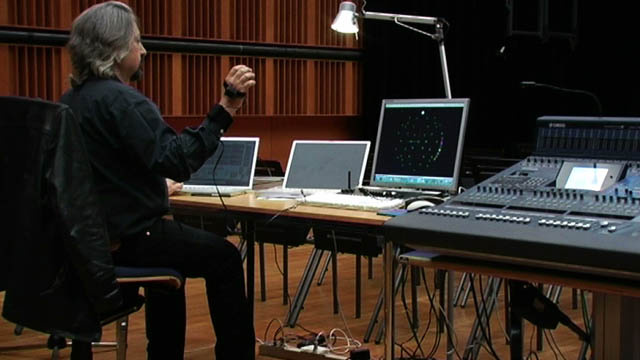A short Introduction into the ZKM | Institute for Music and Acoustics

- Date
- Duration
- 2:29
Description
The ZKM | Institute for Music und Acoustics combines artistic work with research and development and is therefore an international forum for international discourse and exchange. By holding concerts, symposia and festivals on a regular basis it brings together composers, musicians, musicologists, music software developers and listeners interested in contemporary music. Loudspeakers and computers have added a new dimension to the world of traditional instrumental acoustic sounds. The Institute of Music and Acoustics regards itself as a place where sounds are created, which have never been heard before. Contemporary music at the ZKM is seen as an equal partner within a center for media art. From its very beginning the Institute of Music and Acoustics has pursued experimental musical works independently. Artists in Residence and software developers work on their productions in studios at the institute. With digital sound synthesis, algorithmic composition, live-electronics up to radio plays, interactive sound installations and audiovisual productions their creations cover a broad range of what digital technology can inspire the musical fantasy to. Despite the technical orientation, musical and artistic work is always put first at the ZKM | Institute for Music and Acoustics, which is one of the reasons it is so widely appreciated in the musical world. The aesthetic spectrum of projects realised at the Institute is not only limited to the paradigm of ›New Music‹ in the sense of the twentieth century ›Neue Musik‹. Even if the roots of many projects lay there, the Institute views itself as a base for all musical approaches which pursuit with open ears towards new tendencies and technologies in music. The ZKM is financially supported by public authorities. Therefore no commercial projects are accepted.
For many productions, the Institute of Music and Acoustics cooperates with related institutions, festivals, ensembles and broadcasting cooperations. The institutes own artist-in-residency program often additionally supported by foundations or by collective commissions with other institutions.